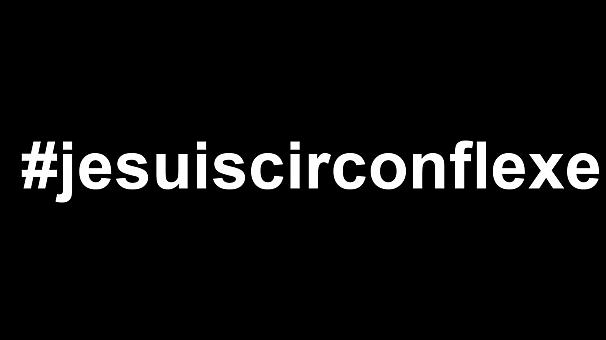French language reforms: are they necessary?
French is a complex language and even some French nationals struggle with spelling. However, instead of helping people master the beautiful language of Antoine de Saint-Exupéry and Molière, France is choosing to simplify it.
The Académie Française has agreed to French language reforms put together in 1990 by the Conseil Supérieur de la Langue Française. The Conseil Supérieur de la Langue Française is a group of teachers, grammaticists, linguists and dictionary editors, which was created in 1989 by former Prime Minister, Michel Rocard. The editors of school manuals and textbooks previously refused the French language reforms, but they are set to be put in place for September 2016.
The academy has agreed to changes to approximately 2400 word spellings and to the removal of accents, notably the circumflex accent. ‘Oignon’ can now be spelled ‘ognon’ and ‘nénuphar’ as ‘nénufar’; certain words can be written without a hyphen, so ‘porte-monnaie’ becomes ‘portemonnaie’; and accents are no longer needed on words like ‘coût’, ‘paraître’ and ‘ambigüe.’ While some changes are minor, the question is, are they necessary?
The position of the Académie Française
The Académie Française has been very strict in terms of preserving the French language. Its entire existence, which began in 1634, is based on keeping French “pure et compréhensible par tous”.

Words can only be borrowed from other languages if there is no French alternative, and the academy has even created new words rather than resort to this. Further, those applying for French nationality must pass a language test – the Test de Connaissance du Français pour Accès a la Nationalité Française – with a grade of B1 or higher. The Académie have also refused the feminisation of some official titles on the grounds that it would contradict the rules of derivation (creating one word from another).
Hélène Carrère d’Encausse, secretary of the Académie Française, claims that the academy is completely against any spelling reforms, but has agreed to certain simplifications which are not obligatory and which will be put to the test of time. With studies showing that one in five children leave school unable to read, Carrère d’Encausse claims the solution isn’t to simplify language for students, but to review the entire French education system.

However, in a letter to the Academie Française, Najat Vallaud-Belkacem has expressed her surprise at their position, referring to the fact that the French language reforms were included in the 9th edition of the Académie Française dictionary. She also claims that Maurice Druon announced in 1990 that the reforms had received unanimous approval by the academy and that the 2008 French high school syllabi also claim to be approved.
Strong reactions to the French language reforms
The reforms have caused uproar in France – which has been expressed on Twitter with #JeSuisCirconflexe – due to the perceived “destruction of the French language”. Those opposed to reforms (seemingly most of the French public) have highlighted the need for the circumflex accent due to the significant difference between words such as ‘jeune’ (young) and ‘jeûne’ (to be fasting). In my opinion, politician Francoise Grossetete is correct when she says that instead of encouraging mediocrity we should be valorising the beauty of the French language.
As a Romance language descended from Latin and influenced by romanticism and realism, their language is an inherent part of France’s national identity and pride. As such, it should only be changed if for the better, which is not the case here. If the Académie Française believes that simplifying spelling is more effective than helping children to master those spellings, perhaps they should be reviewing the way the French school system educates children.
Writing the French language is certainly not easy and it is only natural that children make spelling mistakes—but surely is it more worthwhile to prepare those children to use their language correctly as adults, rather than ‘dumb it down’ to primary school level. I cannot begin to imagine the confusion this will cause between the generations that were taught the original spellings and the young people who will now be taught the new.
The French language: a matter of national pride

The French public’s fury has forced the ministry of education to reassure them that the accent circonflexe is not disappearing, just becoming optional, and that both the old and new spelling forms will be considered correct. According to Pierre Fevre, president of the National Schools Union “What makes this subject so controversial is that people are passionate about it. To change spelling touches on their childhood, reminds them of the pain, the effort, the successes needed to learn the rules and triumph. The circumflex accents are a kind of trophy.”
Historian Claude Lelievre said in a previous interview “In France, even in the 21st century, spelling is used to socially distinguish oneself: we are allowed to struggle with mastery of one out of three rules, but not to make spelling mistakes.” Many worry that accepting these small changes now could pave the way for more French language reforms and bigger changes in the future.
If the French language reforms mean that two different spellings of the same word will now both be considered correct, why not teach the proper spelling in the first place? These changes will only encourage laziness when it comes to spelling, and their implementation merely means that those who make mistakes when writing French can be assured that they are correct.
I am one of many who believe these reforms will reduce the standards of a language that, in all its historical and literary glory, deserves to be preserved.
What are your thoughts on the French language reforms? Do you support changes? Let us know in the comments below.
Image credits:
1. Spelling changes, via BBC
2. Dictionairre de Académie Française, via wikipedia
3. Hélène Carrère d’Encausse by ActuaLitté, via Flickr
4. #jesuiscirconflexe, via Euronews
5. Drawing by Klimkin, via pixabay









I understand the move as language is changing all the time, but I am disappointed by the changes being proposed and I agree with Mme Carrère d’Encausse that the education system needs to be looked at if children can’t spell, rather than dumbing down the language itself. They no longer speak ‘la langue de Molière’ any more than we speak Shakespeare’s language, but I feel language forms our identity and I am not so happy with ‘optional’ spellings – in English or in French.
I agree, Jan! Thanks for sharing your thoughts.